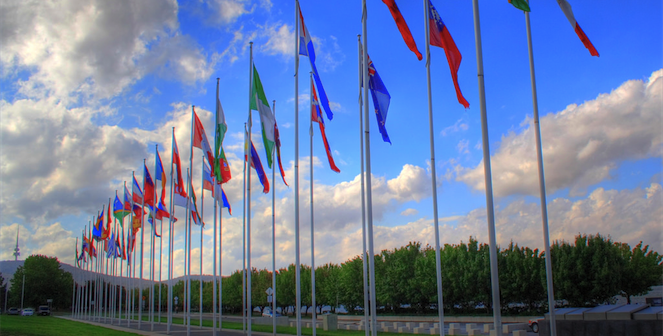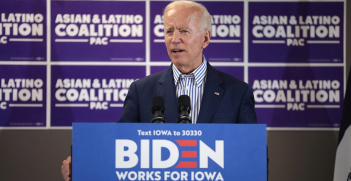Decency and Diplomacy: the Value of Human Impact

As the Federal Budget announced two new diplomatic missions – in China and Papua New Guinea – it is important to remember the value of personal contact and decency in Australia’s diplomacy.
It has now become commonplace, indeed essential, for media and commentators to judge all foreign policy actions according to some (read their own) scale of morality. This in turn has resulted in governments seeking to portray virtually all of their actions as morally justified and usually morally necessary. Even when that effort is patently ludicrous.
Seeking domestic advantage
Members of a government often carry out foreign policy actions for their own domestic political advantage, regardless of any genuine approach to national interest. In such cases a government would no doubt always try to find at least a fig leaf of moral justification – and may even succeed in bluffing its way due to the media’s short attention span. This was the case, for example, with the Abbott Government’s rather sudden high profile (and many flagged) preoccupation with Islamic terrorism, which at the time was closely related more to its perception that this played well to its political polling than to a genuine belief in the immediacy of the threat.
It is therefore always time to look carefully when a government claims, perhaps too loudly, that it is chasing some grand moral idea. We are reluctant, it seems, to look at our own international action as firstly a pursuit of our national interest, which is after all a pursuit of the general interest of all our people; there is nothing wrong with that. Obviously, a country like Australia must seek to act morally. But too often we go too far in churning up moral justifications, often several, which are just not believable. This has a long-term effect on our diplomatic credibility. When we do act in rather straightforward national interest terms, say in the matter of Timor Leste maritime resources, we even seem to be embarrassed at our own bluntness.
Decency in diplomacy
Australians generally think highly of our own moral credibility. Others may have different views. For example, Australia’s campaign for the UNSC had a slogan stating “we do what we say”. Campaign over, we dropped many of those campaign promises. It is important to remember that a country’s reputation is a most valuable commodity in its international relations and is not to be trashed lightly. A reputation trashed is hard to recover.
Firstly, it should go without saying that our representatives abroad should act appropriately. While for the most part they do, there have been occasions where this has not been the case. For example, the Whitlam Government sent Vince Gair as Ambassador to Ireland, where his appalling behaviour both in and out of the office quickly became a general scandal and besmirched Australia’s good name. This was a decision where domestic political priorities dominated any sense of either national interest or decency. It was a disgrace and should serve as a lesson to all future political leaders to restrain themselves when pressed by entitlement seekers.
The main point is that diplomacy delivers through personal contact. This is what produces results. You can send as many emails and third-person notes as you like, but in the end it’s personal contact that wins out. When Bob Hawke wanted to launch APEC, for example, hoped-for Asian partners were not brimming with enthusiasm, to say the least. The initiative succeeded only because diplomat (and now Fellow of the AIIA) Dick Woolcott AC was despatched around the region to make the case in person. He did it with flair and skill and APEC was born. Australia’s own recent candidacy for the UNSC succeeded in the end because of the personal contacts won over by Australia’s representatives in New York and across the world. This was most notable in countries that the other candidates and everyone else had written off as impossible votes for Australia. Occasional demands from the peanut gallery for, inter alia, the closure of diplomatic posts – allegedly for “cost-saving” reasons – is just the height of foolishness. Our posts cost so very little and deliver so much in terms of personal influence.
Secondly, and more importantly in the policy domain, Australia’s sense of decency should always inform our actual handling of relationships with other countries. It is particularly in the Pacific where our record has not always been at all good. One of the worst examples in recent times was the abrupt decision by the then transport minister, Laurie Brereton, to cancel passport-free travel to Australia from New Zealand. That was done virtually overnight, with neither consultation nor adequate warning, and in an area of vital interest to New Zealand. Imagine the outcry here if something similar were done to us. Indeed, our handling of the Pacific countries has so often left a lot to be desired. This will become an ever more acute problem for Australia given the increasingly less amenable attitude towards us in the Pacific. How many times have Australian prime ministers not bothered to attend the Pacific Forum, the annual meeting of their Pacific counterparts? And, by way of comparison, how loudly we complain if, for example, the US does not send adequate level representatives to annual APEC or ASEAN-plus meetings? I believe that if larger countries than Australia treated us the way we treated the Pacific countries then we would complain loudly indeed.
Australian governments and its foreign ministry would do well to remember the adage of decency: “do unto others…”.
William Fisher served for many years as a career diplomat, with postings including High Commissioner to Canada and Ambassador to France. He is currently at the ANU College of the Asia-Pacific and Diplomacy. This article is adapted from his remarks at the Australian Diplomacy Today Symposium presented by the Australian Institute of International Affairs, the Asia-Pacific College of Diplomacy and Bond University with support from Department of Foreign Affairs and Trade. It is published under a Creative Commons Licence and may be republished with attribution.





